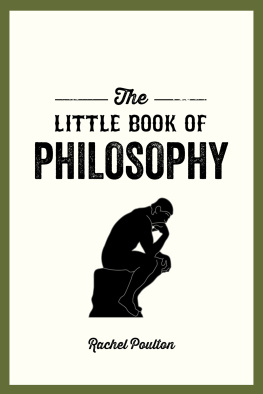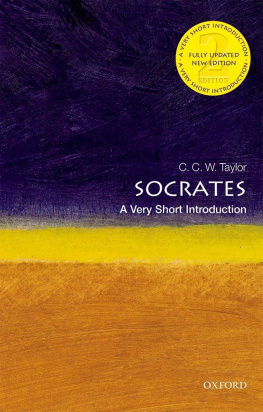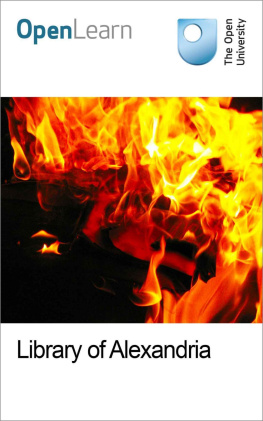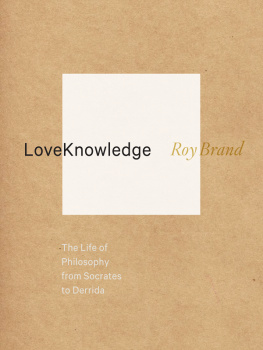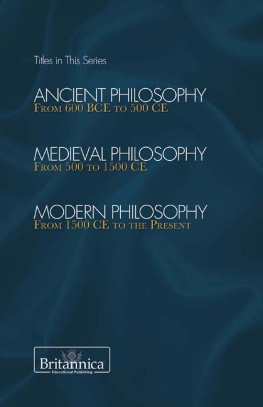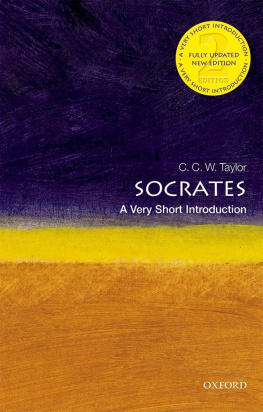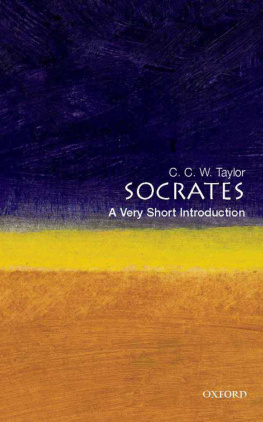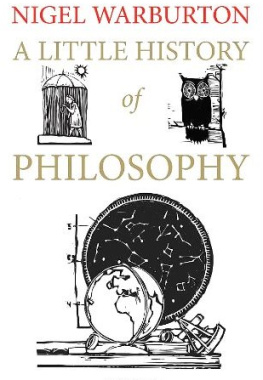Socrates and Other Saints
Early Christian Understandings of Reason and Philosophy
Dariusz Karowicz
Translated by Artur Sebastian Rosman
With a foreword by Rmi Brague

SOCRATES AND OTHER SAINTS
Early Christian Understandings of Reason and Philosophy
Copyright 2017 Dariusz Karowicz. All rights reserved. Except for brief quotations in critical publications or reviews, no part of this book may be reproduced in any manner without prior written permission from the publisher. Write: Permissions, Wipf and Stock Publishers, W. th Ave., Suite , Eugene, OR 97401 .
Cascade Books
An Imprint of Wipf and Stock Publishers
W. th Ave., Suite
Eugene, OR 97401
www.wipfandstock.com
paperback isbn: 978-1-4982-78 73-7
hardcover isbn: 978-1-4982-7875 -1
ebook isbn: 978-1-4982-7874-4
Cataloguing-in-Publication data:
Names: Karowicz, Dariusz, 1964 . | Rosman, Artur Sebastian
Title: Socrates and other saints : early Christian understandings of reason and philosophy / Dariusz Karowicz, with a foreword by Rmi Brague
Description: Eugene, OR: Cascade Books, 2016 | Series: Kalos # | Includes bibliographical references and index.
Identifiers: isbn 978-1-4982- 7873-7 ( paperback ) | isbn 978-1-4982- 7875-1 ( hardcover ) | isbn 978-1-4982- 7874-4 ( ebook )
Subjects: LCSH: Hellenism | Philosophy, Ancient | Fathers of the church | Faith and reason
Classification: BR128.8 K37 2017 ( print ) | BR128.8 ( ebook )
Manufactured in the U.S.A. January 24, 2017
Originally published in Polish in 2005 as Sokrates i inni wici Fronda Pl. Sp. Z o.o
Scripture texts in this work are taken from the New American Bible, revised edition 2010, 1991, 1986, 1970 Confraternity of Christian Doctrine, Washington, D.C. and are used by permission of the copyright owner. All Rights Reserved. No part of the New American Bible may be reproduced in any form without permission in writing from the copyright owner.

The word kalos () means beautiful. It is the call of the good; that which arouses interest, desire: I am here. Beauty brings the appetite to rest at the same time as it wakens the mind from its daily slumber, calling us to look afresh at that which is before our very eyes. It makes virgins of us all, and of everythingthere, before us, lies something that we never noticed before. Beauty consists in integritas sive perfectio [integrity and perfection] and claritas [brightness/clarity]. It is the reason why we rise and why we sleepthat great night of dependence, one that reveals the borrowed existence of all things, if, that is, there is to be a thing at all, or if there is to be a person at all. Here lies the ground of all science, of philosophy, and of all theology, indeed of our each and every day.
This series will seek to provide intelligent-yet-accessible volumes that have the innocence of beauty and of true adventure, and in so doing remind us all again of that which we took for granted, most of all thought itself.
series editors:
Conor Cunningham, Eric Austin Lee, and Christopher Ben Simpson
For Juliusz Domaski with gratitude
Foreword
T he church fathers never were totally forgotten. But, more often than not, they were read with a teleological optics. Controversial theology, beginning in the sixteenth century, looked for forerunners of Catholic or Reformed dogmatics, but made high standards of philological and historical accuracy necessary. Neo-Scholasticism saw them as paving the way for more elaborate theological syntheses, in particular the work of Thomas Aquinas. Their works were excerpted and used as arguments, but seldom studied for their own sake.
An impressive witness of the interest of the nineteenth century for patristics, as well as a moving evidence for the high cultural level of the French clergy in the said period, is the mighty enterprise of a Catholic priest, Jacques-Paul Migne (d. 1875). His methods in dealing with former editors were seldom on the right side of the copyright laws, as the amusing biography that R. Howard Bloch devoted to him shows. Yet, the result is there, an impressive monument of more than four-hundred in-quarto volumes, so widely known and taken advantage of that new editions of patristic texts always refer in their margins to the columns of Mignes Patrologia Graeca and Patrologia Latina , even if their level of scholarly accuracy is way above that of Mignes volumes.
Special mention must be made of fathers Claude Mondsert and Henri de Lubac, both were Jesuits, and of the series Sources Chrtiennes , founded in the darkest hours of the Second World War (1942), and in the wake of which many collections were produced in several languages.
Yet, the philosophers who paid attention to the writings of the church fathers are not that many. To the best of my knowledge, there is still no equivalent of Hans Jonas work on the gnostics, i.e., of an interpretation of religious thinkers by means of conceptual tools borrowed from philosophy. The nearest approach we possess is Harry A. Wolfsons huge first volume of a monograph that never was completed,
Augustine is the exception that confirms the rule. Not to mention more or less casual references to utterances by him in Husserl (on the inner man as place of the truth) and Wittgenstein (on the way children learn to speak), Heidegger devoted a whole lecture-course to the Confessions .
In the present book, Dariusz Karowicz chose to write as a philosopher interested in the philosophical aspects of some church fathers. He limits his research to a definite period of time. Not the very earliest period: the so-called Apostolic Fathers (Ignatius, Clement of Rome) are left out of the picture. Rather, he focuses on Tertullian, Justin, Clement of Alexandria. The anonymous Epistle to Diognetus and Origen are mentioned only twice, the Cappadocians never. This period can be characterized on historical and philosophical grounds.
Historically, it antedates the turning-point of Constantines conversion and of the Council of Nicea. Dariusz Karowicz points out that the historical situation of the ante-Nicene fathers is very much the same as our own [910]. Whether this is a drawback or a chance is an open question. The Constantinian era may have been a parenthesis only on the backdrop of a normal situation of estrangement of Christianity vis--vis the surrounding culture. Not necessarily a persecution, although the last century has produced a number of martyrs that dwarf the victims of Nero or Diocletian. The present one might itself make it look like the botched performance of amateurs.
Philosophically, Dariusz Karowicz chooses to focus on the crucial period of the first encounter of Christianity and philosophy. Hence, we are before the Cappadocians. With them, especially Gregory of Nyssa, Platos influence becomes unmistakable, although Platonism never was swallowed with hook, line, and sinker, but always corrected and completed on essential points. Not to mention later authors like Pseudo-Dionysius the Areopagite, who lived around 500, who heavily drew on Proclus, or Leontius of Byzantium and Maximus Confessor, both steeped in Aristotelian logic and metaphysics.
The very first Christian writers had few contacts with technical philosophy. This must be explained, in order to correct a fallacy arising from the very way in which we perceive the ancient world. For us, this world is present first and foremost thanks to its literary legacy. The ancient world means: ancient literature and art. Hence, we spontaneously think of the ancient mind as being ancient philosophy. But philosophy was in the ancient world the privilege of a rather narrow cultural elite. Philosophers did not write for the common run of mankind. The subtleties of higher philosophy were not directly known by the early church fathers, who had to put up with textbooks of doxography. Now, the bulk of what we call ancient philosophy is for us the library of the late, decidedly high-brow Neoplatonic schools, that comprised the works of the professors (Plotinus, Proclus, Damascius) and the classical works they commented upon, i.e., Plato and Aristotle.


